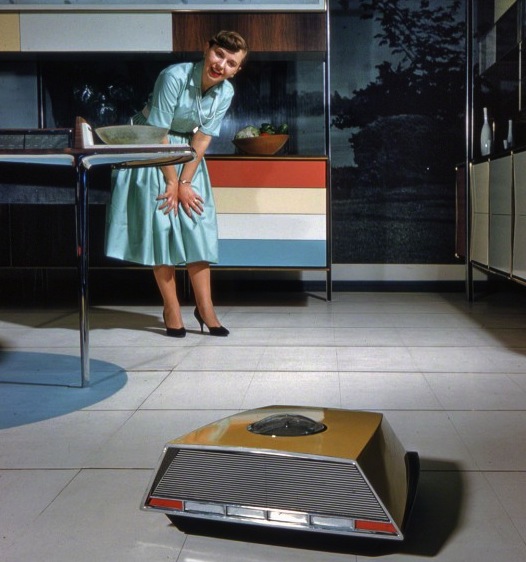A follow-up post to the David Graeber video about so-called bullshit jobs, here are excerpts from two articles about modern employment, one from Farhad Manjoo of the New York Times which looks at the Uberization of work and the other by Joshua Krook of New Intrigue which focuses on labor in a highly automated world.
_______________________________
From New Intrigue:
The Robotic (Post-Industrial) Revolution:
There is something very curious about politicians constantly obsessing over people getting jobs in the light of the oncoming Robot Revolution.
Now you might think I’m crazy for believing in such things, but then you will have to call the likes of Stephen Hawking crazy too, which is a much, much more difficult task.
There are already articles on the web asking: “What will happen when Robots Take our Jobs?” The idea is that an oncoming robotic revolution is coming whether we like it or not.
And with it, the capacity of robots to do the jobs typically reserved for humans – including high-end, white-collar professional work. The latest robotic innovations out of Japan can play ping pong (“and even decide to take it easy on opponents by missing a few hits”), use sign language to “talk” to humans and “mimic simple greetings.” This is only the beginning.
Despite almost every single instinct of intuition in my body saying that robots will make our lives easier, which is what we’ve been taught (using examples like the washing machine in the 1950s) –by freeing up our time and allowing us to work on things that aren’t menial, boring office jobs– we have to look to history here and realise that that seems like an unlikely outcome. History has a few examples where this is true, but on the whole it has gone the other way, and this time round…
It may even go the other way.•
_______________________________
From the New York Times:
Various companies are now trying to emulate Uber’s business model in other fields, from daily chores like grocery shopping and laundry to more upmarket products like legal services and even medicine.
“I do think we are defining a new category of work that isn’t full-time employment but is not running your own business either,” said Arun Sundararajan, a professor at New York University’s business school who has studied the rise of the so-called on-demand economy, and who is mainly optimistic about its prospects.
Uberization will have its benefits: Technology could make your work life more flexible, allowing you to fit your job, or perhaps multiple jobs, around your schedule, rather than vice versa. Even during a time of renewed job growth, Americans’ wages are stubbornly stagnant, and the on-demand economy may provide novel streams of income.
“We may end up with a future in which a fraction of the work force would do a portfolio of things to generate an income — you could be an Uber driver, an Instacart shopper, an Airbnb host and a Taskrabbit,” Dr. Sundararajan said.
But the rise of such work could also make your income less predictable and your long-term employment less secure. And it may relegate the idea of establishing a lifelong career to a distant memory.
“I think it’s nonsense, utter nonsense,” said Robert B. Reich, an economist at the University of California, Berkeley who was the secretary of labor during the Clinton administration. “This on-demand economy means a work life that is unpredictable, doesn’t pay very well and is terribly insecure.” After interviewing many workers in the on-demand world, Dr. Reich said he has concluded that “most would much rather have good, well-paying, regular jobs.”•
Tags: Arun Sundararajan, David Graeber, Joshua Krook, Robert B. Reich

